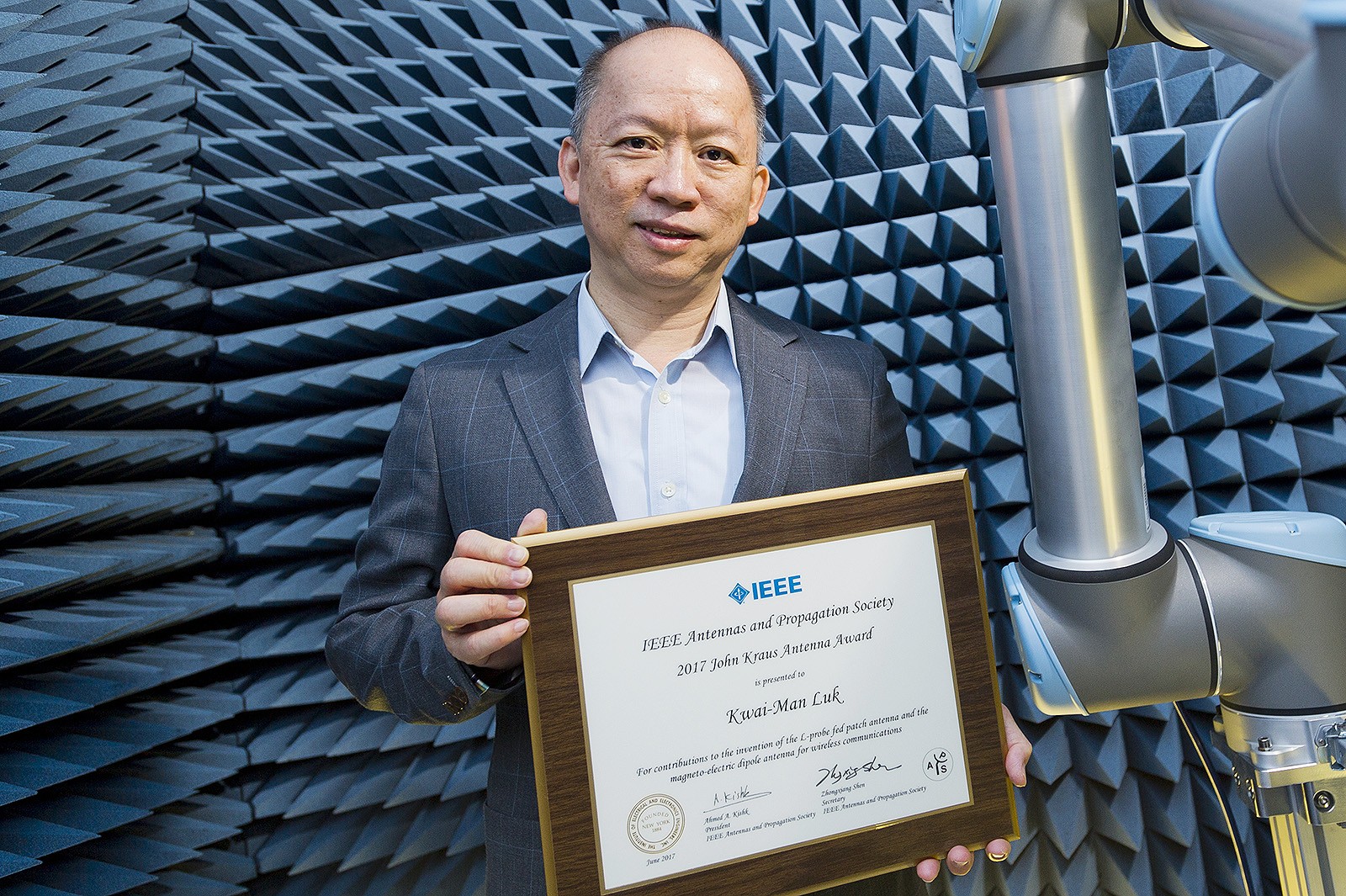Distinguished scholar wins prestigious John Kraus Antenna Award
Professor Luk Kwai-man, Chair Professor in the Department of Electronic Engineering at City University of Hong Kong (CityU), has been conferred the prestigious IEEE AP-S John Kraus Antenna Award for his contributions to the invention of L-shaped Probe Fed Microstrip Antenna and the Magneto-electric Dipole Antenna for Wireless Communications.
It is one of the highest awards in the antenna field globally, and Professor Luk is the first academic from an Asian institution to receive this award. The recipients in the past were from North American and Canadian institutions.
“I am deeply honoured to receive the award. It is recognition of the achievements of Chinese researchers to antenna development,” said Professor Luk, who is also a member of the State Key Laboratory of Millimeter Waves at CityU.
Professor Luk is distinguished for his significant contributions to the design and development of unconventional yet highly efficient wideband antennas that find applications in modern wireless communications, including mobile communication, Radio Frequency Identification (RFID) readers, radars, sensors and medical applications. Water antenna will be his next focus, further advancing the frontier of antenna research.
The invention of the L-shaped probe fed microstrip antenna and the magneto-electric dipole antenna by Professor Luk and his team in 1998 and 2006 exemplifies innovation.
“Wideband antennas are a crucial part of any wireless system. They have to be small and thin, but maintain high efficiency, such as high gain and wide bandwidth. The traditional probe fed microstrip antenna has a narrow bandwidth, but by changing it to an L-shape, the bandwidth has increased from 2-3% to 30%,” he explained.
The bandwidth of the magneto-electric dipole antenna can reach over 60%. The reception capability and stability have also been significantly improved.
For the past two decades, Professor Luk has designed numerous patch, planar and dielectric resonator antennas, including the antennas used in the Beidou Global Positioning System and terahertz antennas. His work has made a great impact in the wideband antenna development, prompting further research around the world, and contributing to the advancement of 4G, 5G and probably 6G network systems.
He is a pioneer in the design of dielectric resonator antennas, which are non-metallic antennas suitable for applications in wideband millimeter-wave communication systems.
“Our recent research interests lie in non-metal antennas and 3D antennas. We have fabricated water antennas that have the potential to be used as wearable antennas for medical applications. We will develop flexible antennas and transparent antennas based on this technology for future wireless systems,” he said.
Professor Luk has garnered many prizes and awards in his career, including the Japan Microwave Prize at the 1994 Asia Pacific Microwave Conference in Chiba, the Best Paper Award at the 2008 International Symposium on Antennas and Propagation in Taipei and the 2011 State Technological Invention Award (second honour). He was conferred the CityU Outstanding Research Award 2017 in recognition of his exceptionally outstanding research achievements.
Founded in 1949, the Institute of Electrical and Electronics Engineers Antennas and Propagation Society (IEEE AP-S) is recognised as the leading society in the antenna field in the world. Established by John D. Kraus, an American physicist known for his contributions to electromagnetics, radio astronomy and antenna theory, the John Kraus Antenna Award honours an individual or team that has made a significant advance in antenna technology.

